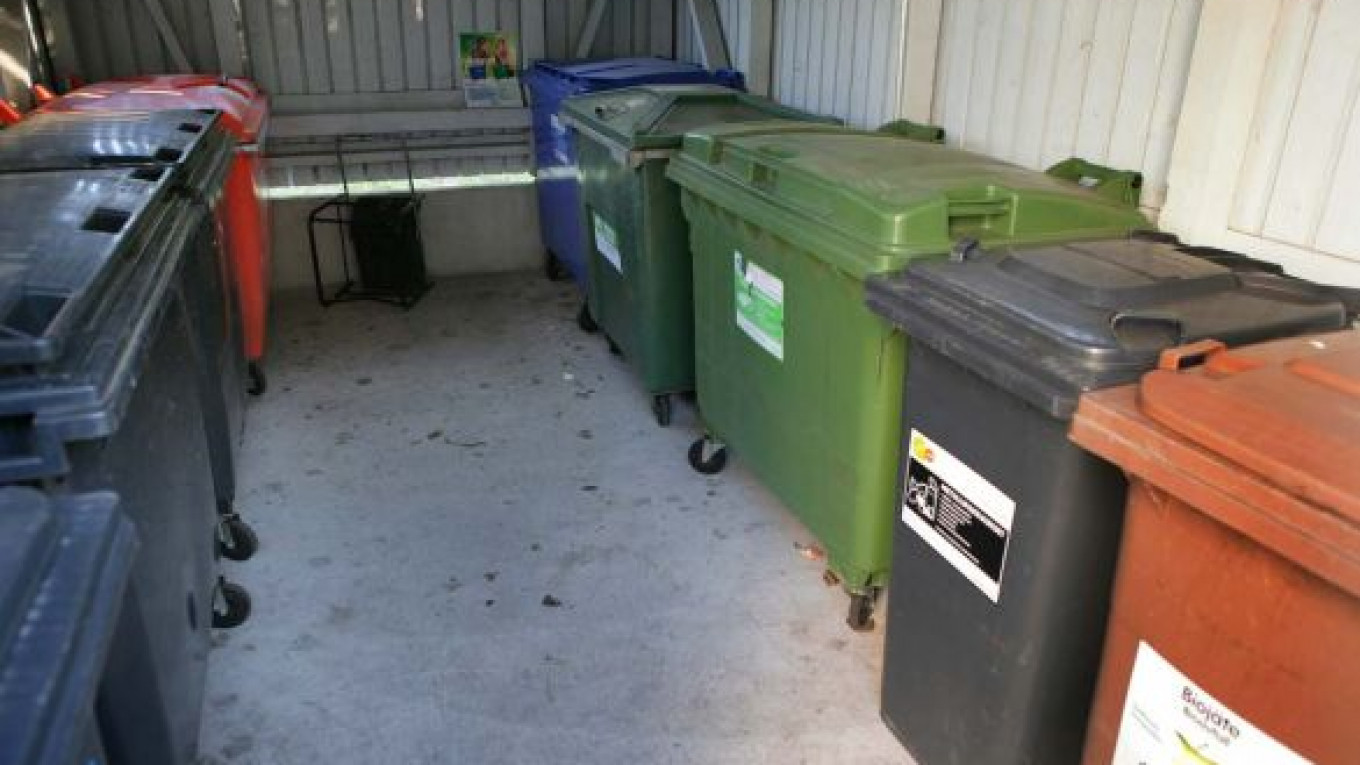Waste recycling moved one step ahead in Moscow as the Krasnoselsky district launched a pilot project for the systematic collection of used batteries Wednesday.
The recycling experiment, which is a joint initiative between environmentalist group #MosEko and the district’s authorities, will see the installation of battery collection bins in major retail outlets within the local residents’ walking distance. If successful, the project could later be expanded to the rest of the city.
“A battery seems like a small thing around the house. Nobody gives much thought that the hazardous substances it contains can destroy 20 square meters of land and 300 liters of water,” said Mikhail Antonov, one of #MosEko’s leaders. “If it is thrown out in the forest, it kills about two hedgehogs, 1,000 worms and everything else that’s alive around it.”
There are already some places where one can discard used batteries in Moscow. Most of them are marked on Greenpeace Russia’s map of privately organized recycling points. However, these points are still sparse and people usually have to travel out of their neighborhoods to satisfy the eco-friendly habit.
Recycling points must be located within walking distance so that they can match the convenience of throwing out batteries into regular waste dumpsters, said Kirill Shchitov, a Moscow City Duma deputy.
Now recycling bins will be located in large stores, including Pyatyorochka, Auchan and Kontinent. The plan is to initially set up 10 clear bins, though #MosEko representatives said they will increase this number to accommodate any retailers who want to participate in the project.
Collection points may also be set up at the Leningradsky, Kazansky and Yaroslavsky train stations, said Alexander Mishakov, head of the district’s administration.
Retailers are not obligated to participate in the initiative, and their responses to the idea have been positive overall, Shchitov said.
The main concern that remains is how the waste would be picked up and recycled, said a representative of the electronics chain M.Video. In the existing plan, it is volunteers who will handle the pickup and utilization details for the collected batteries.
The recycling initiative is currently confined to the Krasnoselsky district, but local authorities said they aimed to export the idea to other central districts and eventually Moscow as a whole.
Organizers will assess the outcomes of the pilot project by the end of September and will start thinking of ways to promote similar actions elsewhere, Antonov added.
Shchitov cautioned that the positive effects would not be felt immediately since locals need time to get acclimatized to the new waste disposal options.
“We’re now going to put [recycling bins] in large stores that are within walking distance, but we’re probably not going to carry them out tomorrow filled up with batteries,” he said. “There won’t be a quick effect, but if we don’t start doing this today, nobody will do it for us.”
Contact the author at [email protected]
A Message from The Moscow Times:
Dear readers,
We are facing unprecedented challenges. Russia's Prosecutor General's Office has designated The Moscow Times as an "undesirable" organization, criminalizing our work and putting our staff at risk of prosecution. This follows our earlier unjust labeling as a "foreign agent."
These actions are direct attempts to silence independent journalism in Russia. The authorities claim our work "discredits the decisions of the Russian leadership." We see things differently: we strive to provide accurate, unbiased reporting on Russia.
We, the journalists of The Moscow Times, refuse to be silenced. But to continue our work, we need your help.
Your support, no matter how small, makes a world of difference. If you can, please support us monthly starting from just $2. It's quick to set up, and every contribution makes a significant impact.
By supporting The Moscow Times, you're defending open, independent journalism in the face of repression. Thank you for standing with us.
Remind me later.






